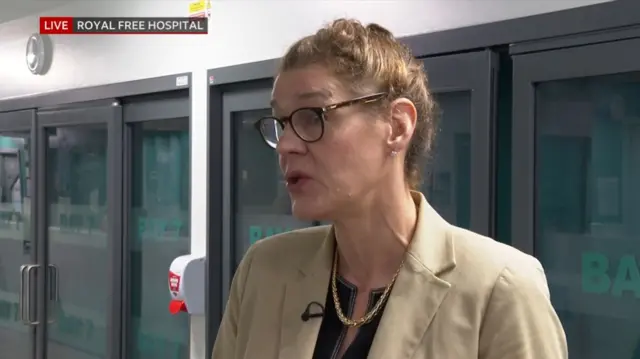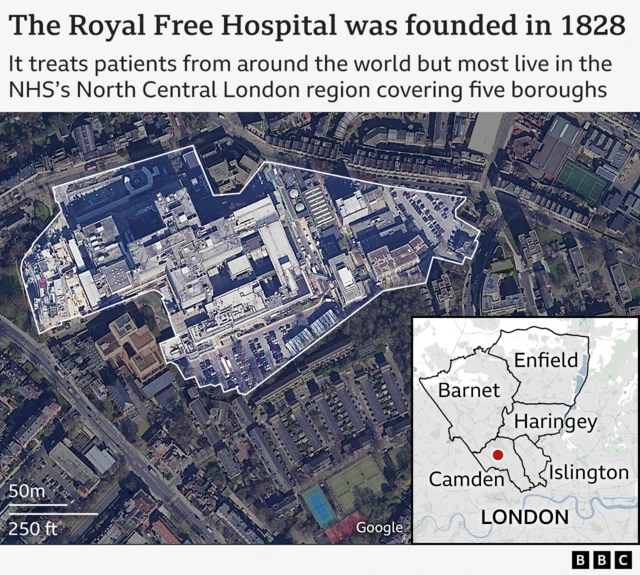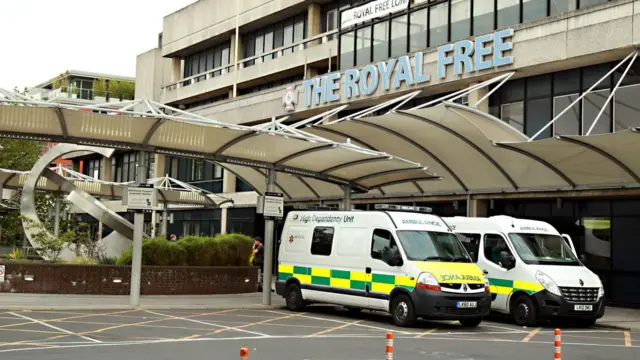The Covid hangover is still hitting waiting listspublished at 07:14 GMT 13 February
 Nick Triggle
Nick Triggle
Health correspondent, reporting from the Royal Free Hospital
The waiting list in England stands at nearly 7.5 million – that is nearly 3 million more than before the pandemic.
More than 40% have been waiting longer than the target time of 18 weeks.
Over the past year it has shown signs of coming down, albeit very slowly. It hit a record high of 7.7 million in September 2023.
Obviously Covid caused numbers to jump up as treatments were cancelled en masse.
But since the pandemic ended hospitals have found it difficult to make major inroads into the backlog.
Despite more money and staff, the number of treatments being started did not really start getting significantly above pre-pandemic levels until the second half of 2024.
And the concern is the pressures of this winter may have hampered efforts make bigger inroads into the backlog.



